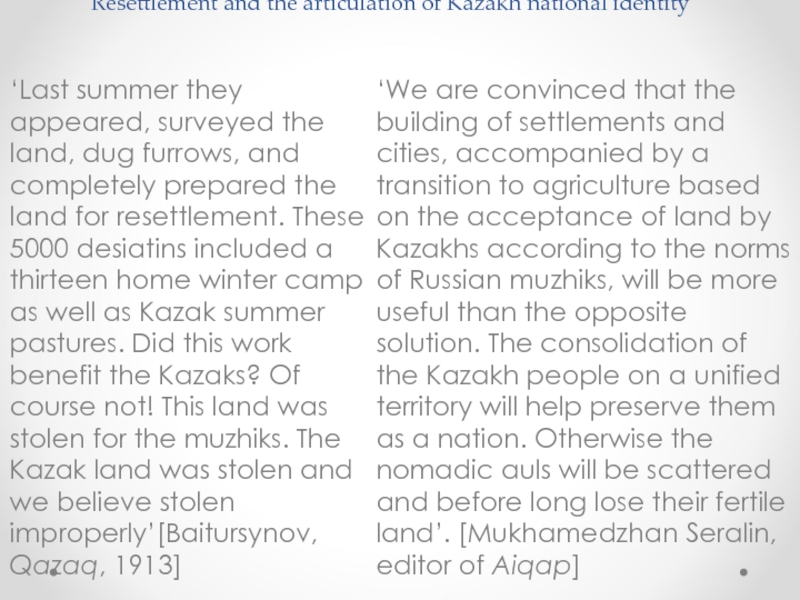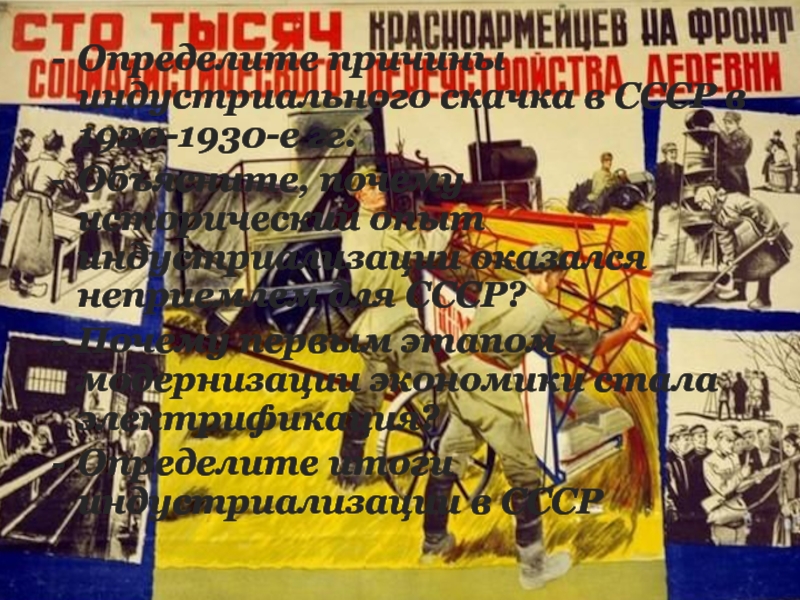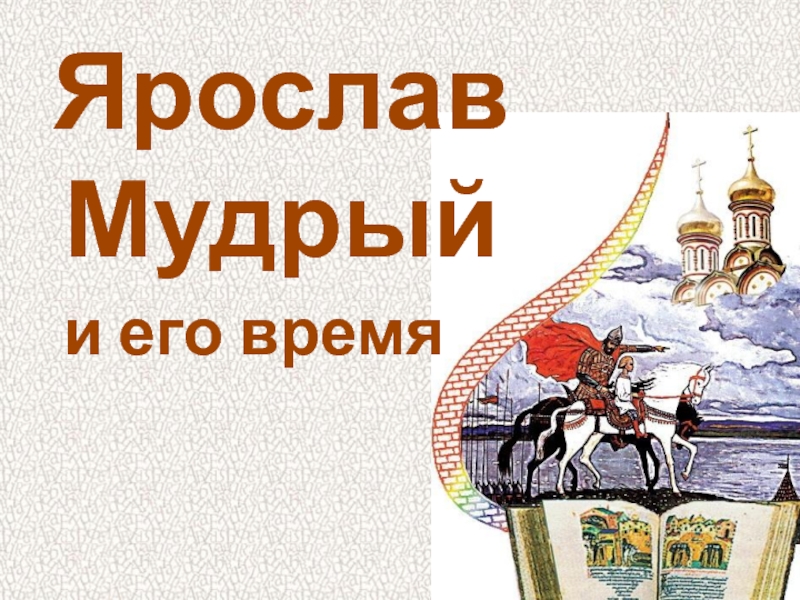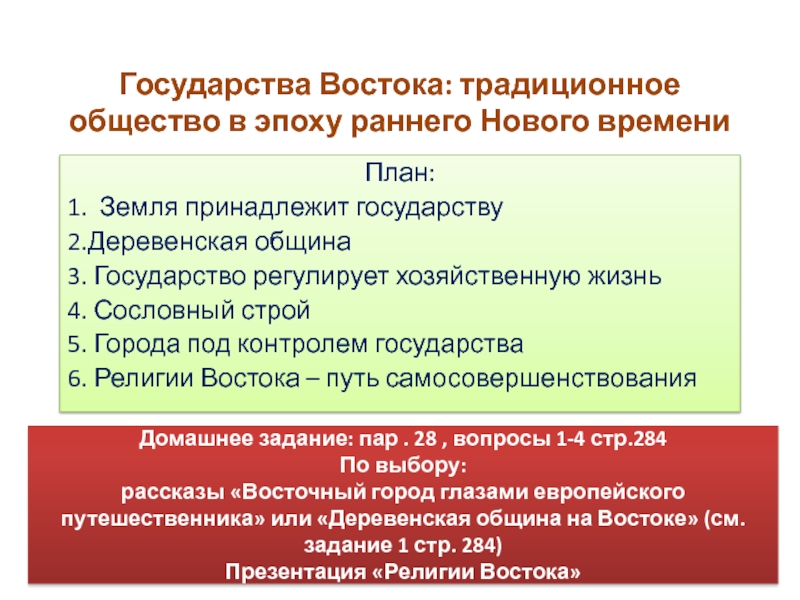- Главная
- Разное
- Дизайн
- Бизнес и предпринимательство
- Аналитика
- Образование
- Развлечения
- Красота и здоровье
- Финансы
- Государство
- Путешествия
- Спорт
- Недвижимость
- Армия
- Графика
- Культурология
- Еда и кулинария
- Лингвистика
- Английский язык
- Астрономия
- Алгебра
- Биология
- География
- Детские презентации
- Информатика
- История
- Литература
- Маркетинг
- Математика
- Медицина
- Менеджмент
- Музыка
- МХК
- Немецкий язык
- ОБЖ
- Обществознание
- Окружающий мир
- Педагогика
- Русский язык
- Технология
- Физика
- Философия
- Химия
- Шаблоны, картинки для презентаций
- Экология
- Экономика
- Юриспруденция
The Politics of Resettlement презентация
Содержание
- 1. The Politics of Resettlement
- 2. Key questions Why did ‘settler colonialism’ take
- 3. Factors contributing to the rise of settler colonialism PART I
- 4. What is ‘settler colonialism’? The population of
- 5. Images of 19th century Irkutsk ‘The resettlement
- 6. What role did the
- 7. What was the importance of non-state actors
- 8. Figure 1 Registered Migration to the
- 9. What made mass migration possible? Bridge over
- 10. ‘In the course of all Russian history,
- 11. (L) The old Siberia – a branded
- 12. The wooden cathedral in Vernyi (Aziatskaya Rossiya Vol.I facing p.381)
- 13. New divisions in the steppe PART II
- 14. How divided was the Russian administration over
- 15. ‘These magic formulae were to be derived
- 16. Russian administration vs nomads (continued) The so-called
- 17. Settler-nomad divide among Kazakhs
- 18. What socioeconomic divisions emerged in the steppe?
- 19. Needs of an industrializing empire vs local environmental and economic concerns
- 20. Ethnic tensions ‘The goal of Russifying
- 21. Nations as ‘imagined communities’ (Benedict Anderson) Nations
- 22. Resettlement and the articulation of Kazakh national
- 23. A group of settlers on a smallholding
Слайд 1Hist100 History of Kazakhstan
The Politics of Resettlement
With thanks to Professors Alexander
Слайд 2Key questions
Why did ‘settler colonialism’ take root in the territories of
How and why did settler colonialism divide society in the steppe in the late 19th and the early 20th centuries?
Слайд 4What is ‘settler colonialism’?
The population of England (w/o Scotland and Ireland)
An estimated 141,000 people emigrated from England each year between 1870 and 1913
Push factors and pull factors
Слайд 5Images of 19th century Irkutsk
‘The resettlement [pereselenie] of state peasants has
Polnoe Sobranie Zakonov Sob.2 Tom XVIII Otd.1 No.16718 21st May 1843 ‘O dopolnitel’nykh pravilakh pereseleniya malozemel’nykh gosudarstvennykh poselyan v mnogozemel’nyya mesta’ p.236
Слайд 6 What role did the Tsarist state play in encouraging migration across
July 1889: statute authorising peasant settlement behind the Urals, special status for peasants settling in the ‘Asiatic provinces’
1896: the establishment of ‘Resettlement Administration’ within the Ministry of Internal Affairs
Stolypin reforms after 1905
Слайд 7What was the importance of non-state actors in encouraging migration?
Khodoki
Numbers of
In the words of one settlement official in Semirech’e, local authorities were "completely unprepared to accommodate from one year to the next the swelling wave of unexpected guests." (cited in Daniel Brower, ‘Kyrgyz Nomads and Russian Pioneers’, Jahrbucher fur Geschichte Osteuropas 44:1)
‘This is the Tsar’s land, and we are the Tsar’s people’
Attempts to control migration by the Tsarist state
Слайд 8
Figure 1 Registered Migration to the Steppe Governor-Generalship 1896-1909
Figure 2 Registered
W
N. Turchaninov (ed.) Itogi Pereselencheskago dvizheniya za vremya c 1896 po 1909 gg. (vkliuchitel’no) (St Pb., 1910) pp.48-53
Слайд 9What made mass migration possible?
Bridge over the river Irtysh, Trans-Siberian railway
-
- Pace of migration increases
- Western Siberia (Tomsk, Tobolsk)
- Akmolinsk, Turghai, Semipalatinsk, Semirechie, Syr-Darya
Слайд 10‘In the course of all Russian history, from the very beginning
‘Krestyanskoe Pereselenie i Russkaya Kolonizatsiya za Uralom’ in G. V. Glinka (ed.) Aziyatskaya Rossiya Vol.I Lyudi i Poryadki za Uralom (St Pb., 1914) pp.440-499 here p.440
Settler colonialism in Russia: peculiar?
Слайд 11(L) The old Siberia – a branded convict who had received
Слайд 14How divided was the Russian administration over the question of resettlement?
‘Their
‘resettlement will crowd them [the Kazaks], but will not deprive them. Losing millions of desiatines, they will be reimbursed by the fact that their remaining land for the first time will acquire a market value; in the steppe, prices will be put on hay, plowland, wheat, and livestock’ [Prime Minister Stolypin and A. V. Krivoshein, the head of the Main Administration of Land Organization and Agriculture, 1910)]
Слайд 15‘These magic formulae were to be derived from statistical research which
Tensions between the Russian state and nomads
Слайд 16Russian administration vs nomads (continued)
The so-called izlishki in the steppe are
The area of izlishki frequently revised upwards
Shcherbina Commission (1896) developing normy for nomadic and settled households
Are the findings reasonable? (Bukeikhanov)
Quality of the land?
Technocracy
‘... strips of plowland, corn fields, and large areas sown to grain already form inviolable borders on the Steppe before which the nomad stock-breeder must halt with his herds, a boundary not to be crossed, a historically necessary symbol of change from one form of economy to another. ... Replacing the nomad with his eternally wandering herds there has arisen here a half-settled form of life, and occupation with the land. And where the plow has cut into the bosom of the earth pastoralism has already started to break up’ (Siberian Railroad Commission Report, 1895)
Слайд 18What socioeconomic divisions emerged in the steppe?
‘Теряя миллионы десятин, они (киргизы)
‘Reduction in pasture led to an increasing death of livestock in winter… and this caused weaker and poorer tribes to reconsider their future: given that the previous form of the economy could not provide their subsitence, they had to look for another one that better corresponds to the situation.And now these tribes are settling in the north to live there for the entire year, close to Russian villages’ [(Timofei Sedel’nikov, Bor’ba za zemliu v kazakhskoi stepi, (St. Petersburg ,1907)]
Слайд 20
Ethnic tensions
‘The goal of Russifying the region [tsel’ obruseniya kraya] by
Palen Pereselencheskoe Delo p.418
Слайд 21Nations as ‘imagined communities’ (Benedict Anderson)
Nations are creations because somebody has
Distinct from regional, ethnic, or other forms of identity
Nations are political communities, whose members believe that they have the right to political representation and sovereign rule
In national communities, power is legitimised with reference to the national idea (i.e. the ruling elite is considered legitimate if it is seen to represent the interests of the nation, not with reference to dynastic descent, the divine right to rule, or any other political principle)
Scholars commonly claim that nations did not emerge before the 19th century: before, power was conceived in dynastic and religious terms
Слайд 22Resettlement and the articulation of Kazakh national identity
‘We are convinced that
‘Last summer they appeared, surveyed the land, dug furrows, and completely prepared the land for resettlement. These 5000 desiatins included a thirteen home winter camp as well as Kazak summer pastures. Did this work benefit the Kazaks? Of course not! This land was stolen for the muzhiks. The Kazak land was stolen and we believe stolen improperly’[Baitursynov, Qazaq, 1913]
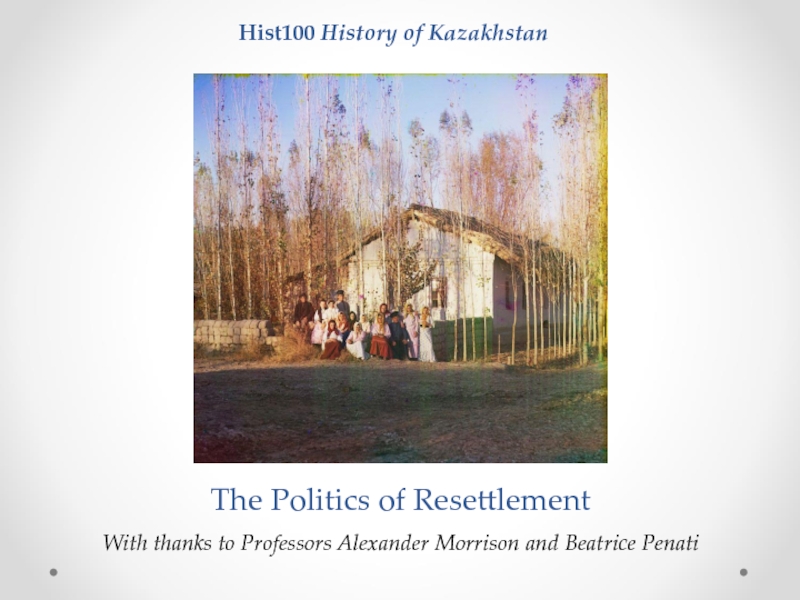
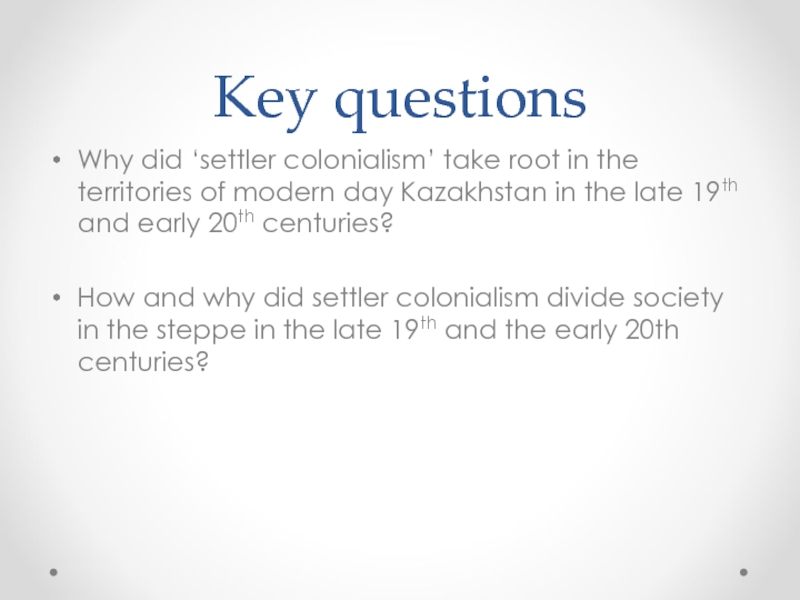
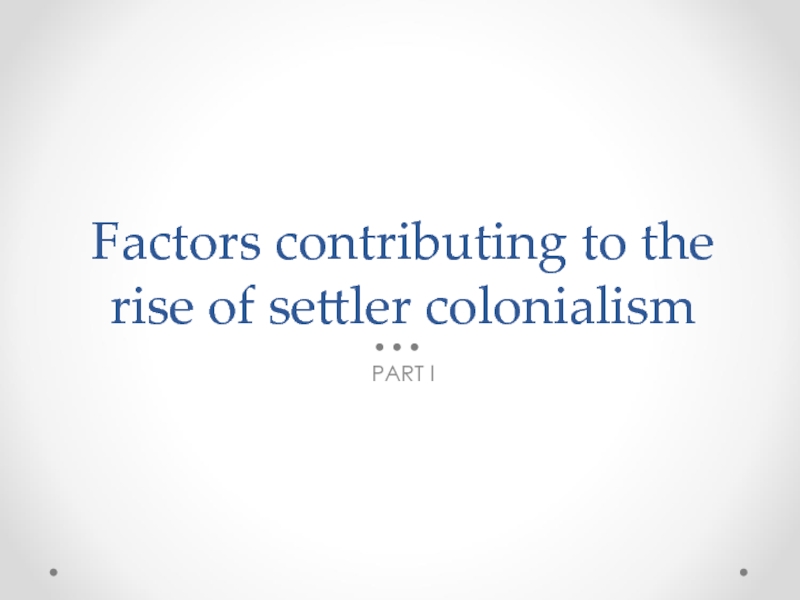
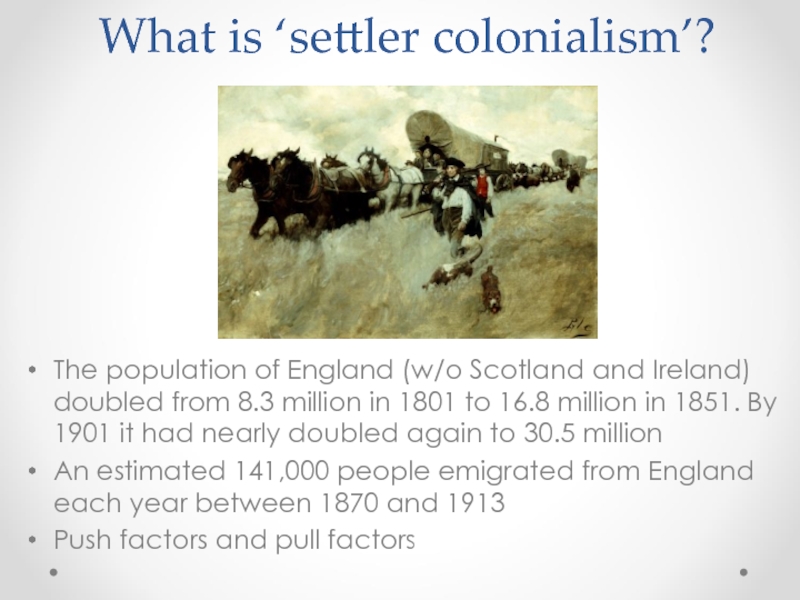
![Images of 19th century Irkutsk‘The resettlement [pereselenie] of state peasants has twin purposes: a) so](/img/tmb/5/418146/baef7d4f52fada5dd5a29f32191c3e53-800x.jpg)

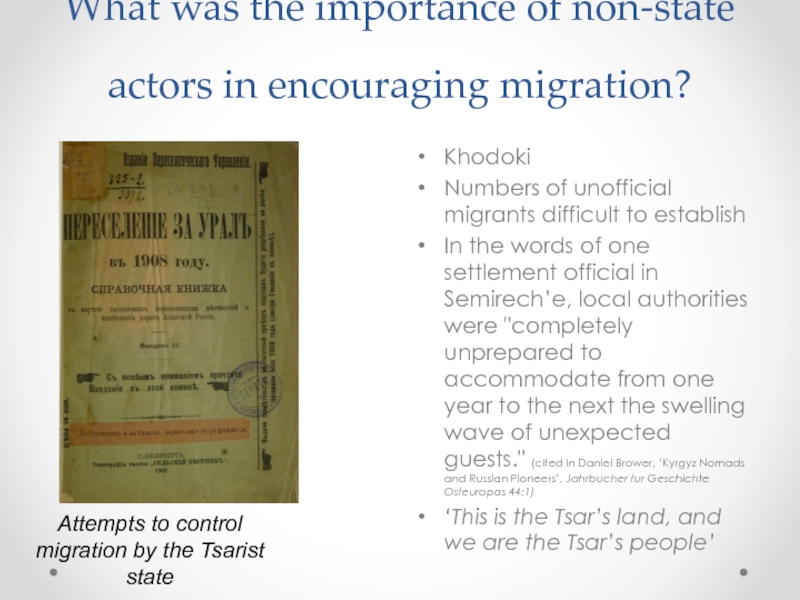
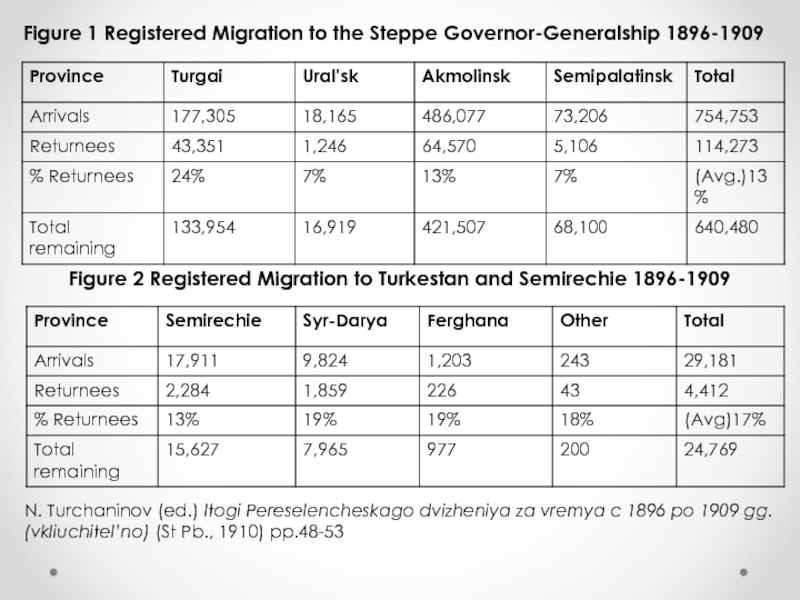

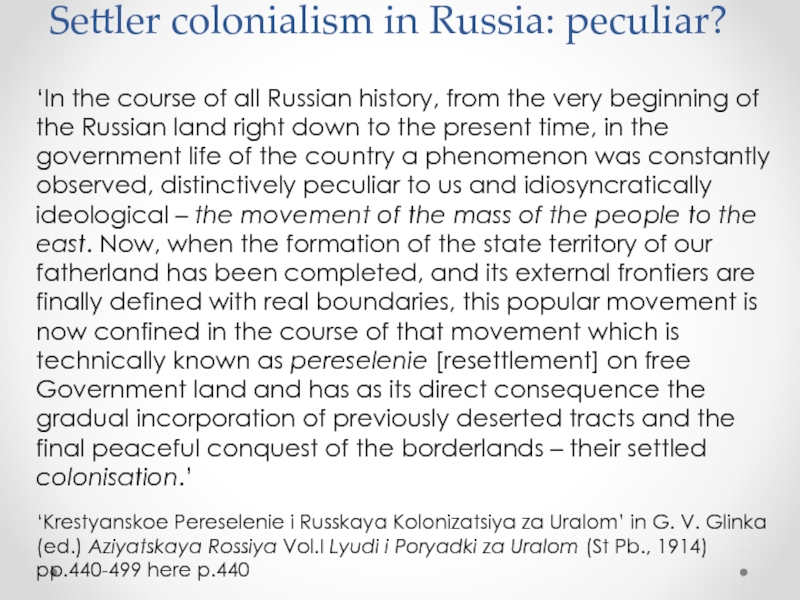

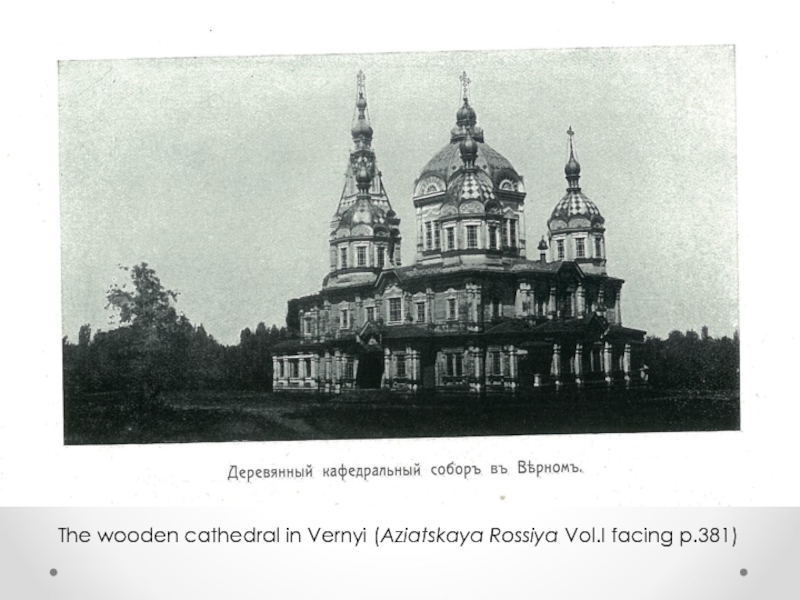
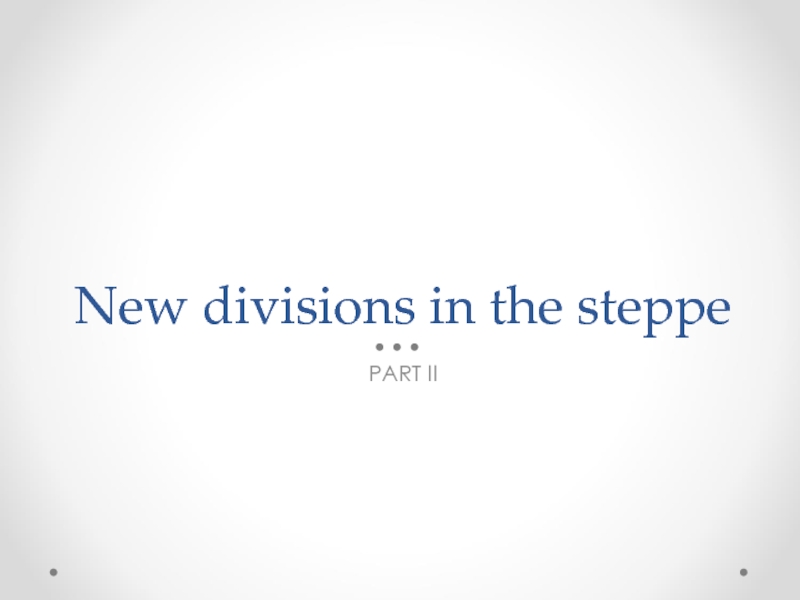
![How divided was the Russian administration over the question of resettlement?‘Their [resettlement officials] effect upon](/img/tmb/5/418146/984e07463e474296cf4f66c31da8a203-800x.jpg)

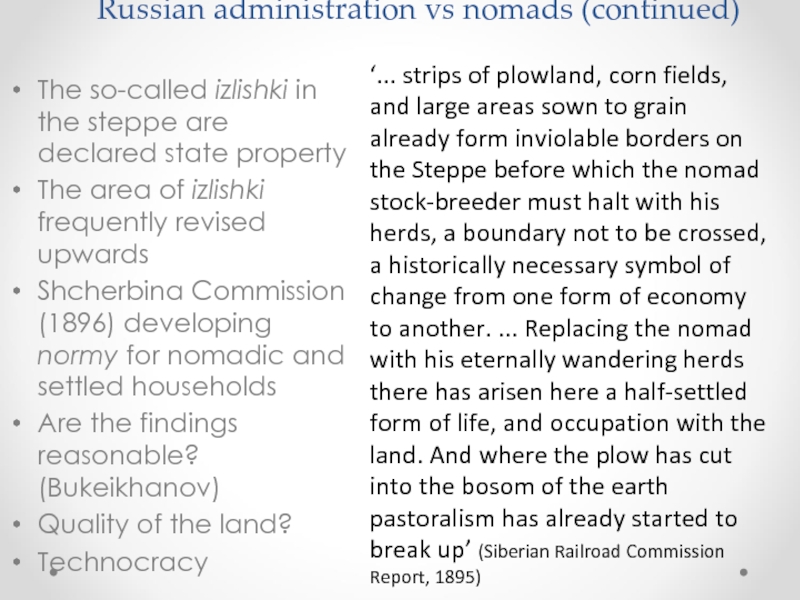
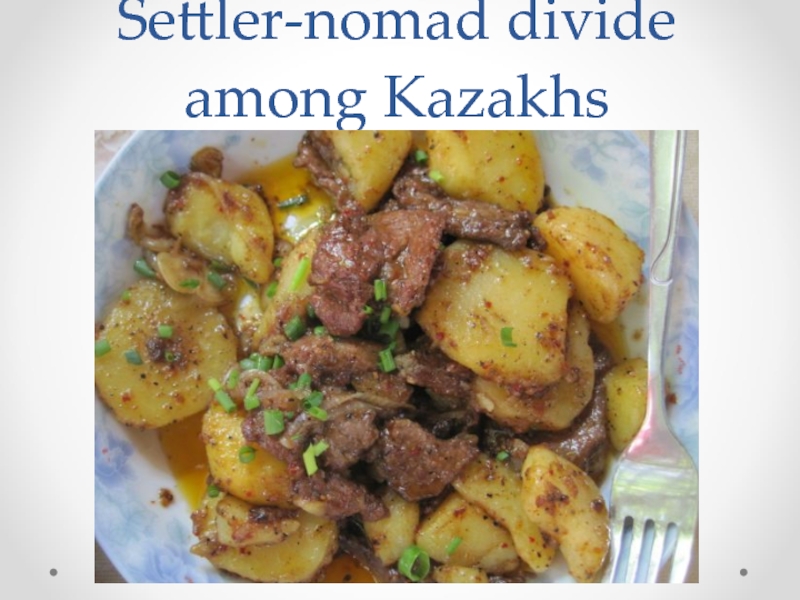
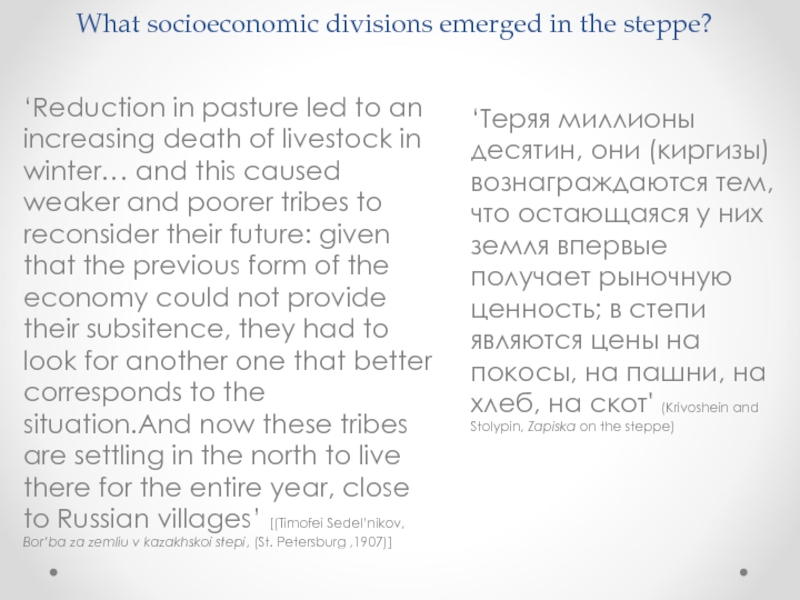
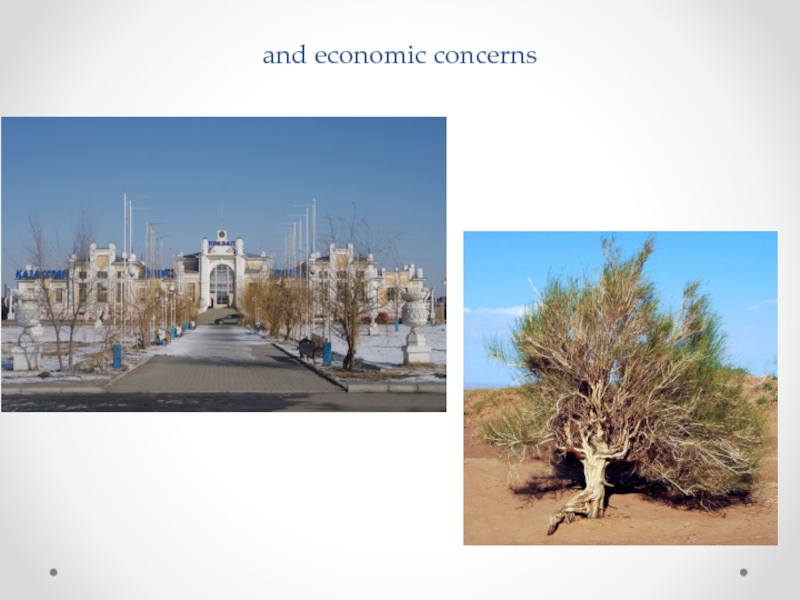
![Ethnic tensions‘The goal of Russifying the region [tsel’ obruseniya kraya] by means of forcibly disseminating](/img/tmb/5/418146/edd7e721be69c570de716beaebeb86d5-800x.jpg)

